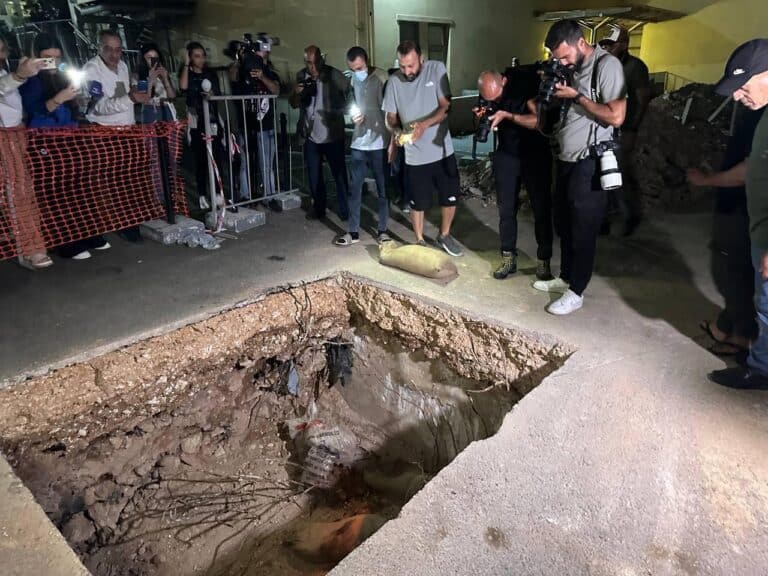
Though Israel has not officially claimed responsibility for the explosions of thousands of beepers at 3:30 p.m. in Lebanon on September 17 that was followed by exploding walkie-talkies the next day, all media reports claim that this was done by Israel in an operation that some believe is a first salvo in a full-scale war.
In an interview with Unpacked, Avi Melamed, a former Israeli Intelligence official and author of “Inside The Middle East: Making Sense of the Most Dangerous and Complicated Region on Earth,” said operations like this may prevent a full-scale war.
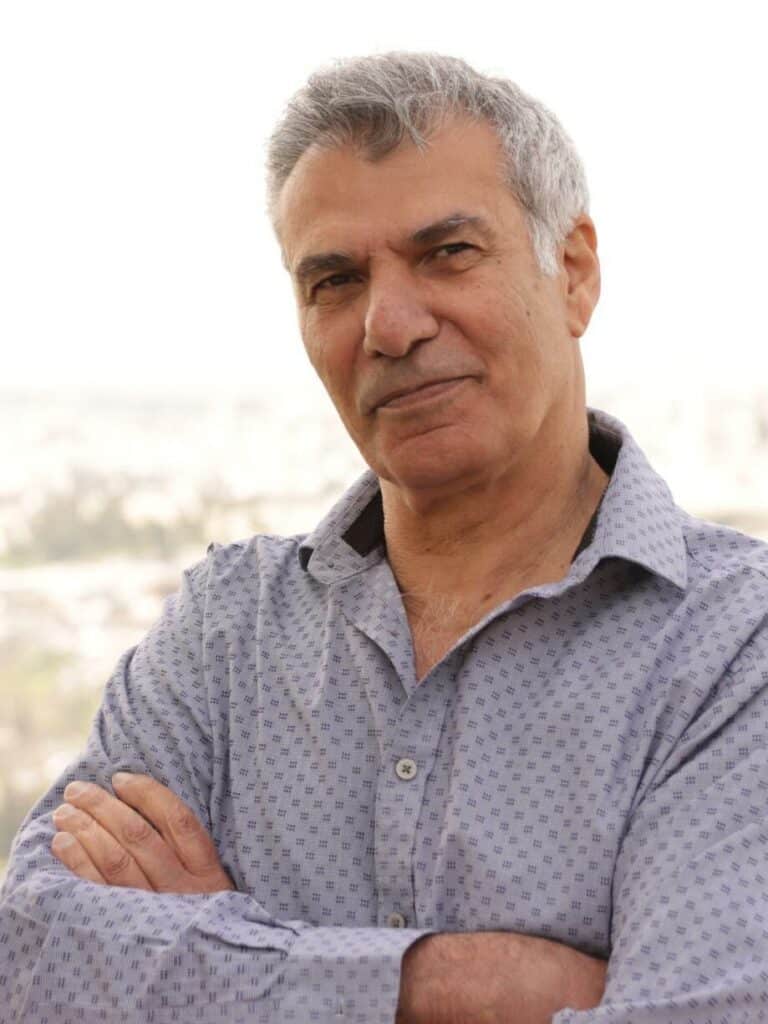
“This (full-scale war) is one option, but it may not be the case,” Melamed told Unpacked. “It’s more likely that it was a move to put pressure on Hezbollah not to escalate but maybe to de-escalate where Hezbollah following this would be more flexible vis a-vis an arrangement to ending the current conflict with Israel.”
Melamed said he believes a larger war is less likely after these attacks because Hezbollah is weakened. There are reports of between 37 and 50 people killed and more than 2,800 have been injured but the numbers are likely to increase amid reports of solar panels exploding.
Did the pager explosions prevent future civilian casualties?
While there are reports of a child being killed, it would be thought that the majority of Hezbollah terrorists would be “at work,” so the attack would not harm anyone except other terrorists.
“I think that as part of this whole preparation, we assume there were calculations in the exact aspect of the timing,” Melamed said. “I don’t know to say necessarily in the context of collateral damage, but I would say based upon analyzing patterns of the routine of Hezbollah, I would think that was one of the things taken into consideration.”
How did Israel complete this attack?
The New York Times reported that Israel planted about three grams of explosives next to the battery of each pager. Assuming Israel was able to get to the supply chain, either through a shell company it ran and licensed the beepers making it appear as if it was from another country, or spies that infiltrated a supplier, wouldn’t the Mossad have had to infiltrate Hezbollah and specifically the person purchasing the beepers?
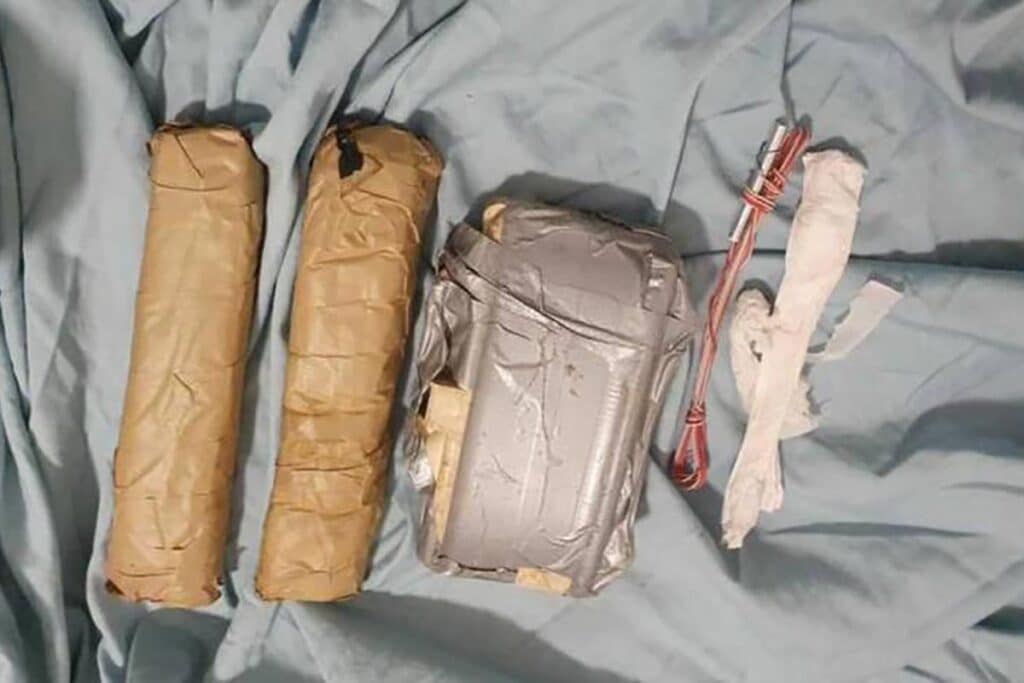
“When you look at the discussion in Arab media there is a consensus that Hezbollah is totally breached and part of that is human sources within the ranks of Hezbollah,” Melamed said. “There are rumors of arrests of people suspected of being Israeli agents. So, it’s possible there was involvement on the ground in the purchasing.”
Melamed added that according to reports, the beepers were scanned but whatever process was used did not identify that the beepers had explosives in them.
Did Hezbollah leader Hassan Nasrallah tip off Israel?
Sheikh Hassan Nasrallah told operatives that they should break, bury, or lock their cell phones in an iron box, as Israel could track their cell phones and assassinate them. He did not specifically announce that the terrorists were using pagers, which are generally not used in today’s world.
#BREAKING: Hundreds of fresh explosions being reported across Lebanon, 24 hours after over 4000 pagers exploded killing 12 and injuring over 3000 Hezbollah terrorists. Fresh explosions are now taking place in hand-held Walkie-Talkie VHF sets used by Hezbollah terrorists. pic.twitter.com/oVLpMLcIxD
— Aditya Raj Kaul (@AdityaRajKaul) September 18, 2024
Melamed said either way, it was obvious that this was how Israel was able to track and take down Hezbollah leaders.
Pagers, developed in the 1950s saw great use in the 1980s. One would receive an extremely short message or a number to call and a person would then use a landline or pay phone to contact a person. It was most often used by doctors who would be paged when there was an emergency, or drug dealers who needed to know if someone was ready to buy. While pagers became obsolete with the advent of cell phones and text messaging, the purchasing of pagers by Hezbollah was thought to be a low-tech solution that could evade Israel’s surveillance.
What led to this moment?
On Oct. 7, Hamas rushed across the border of Israel, killing 1200 and taking 251 hostages — more than 100 of whom are held captive in Gaza.
In the ensuing war, more than 34,000 Palestinians have been killed with many more injured (the number of civilian deaths is disputed, however, as these numbers from the Gaza Health Ministry do not distinguish between “fighters” and civilians).
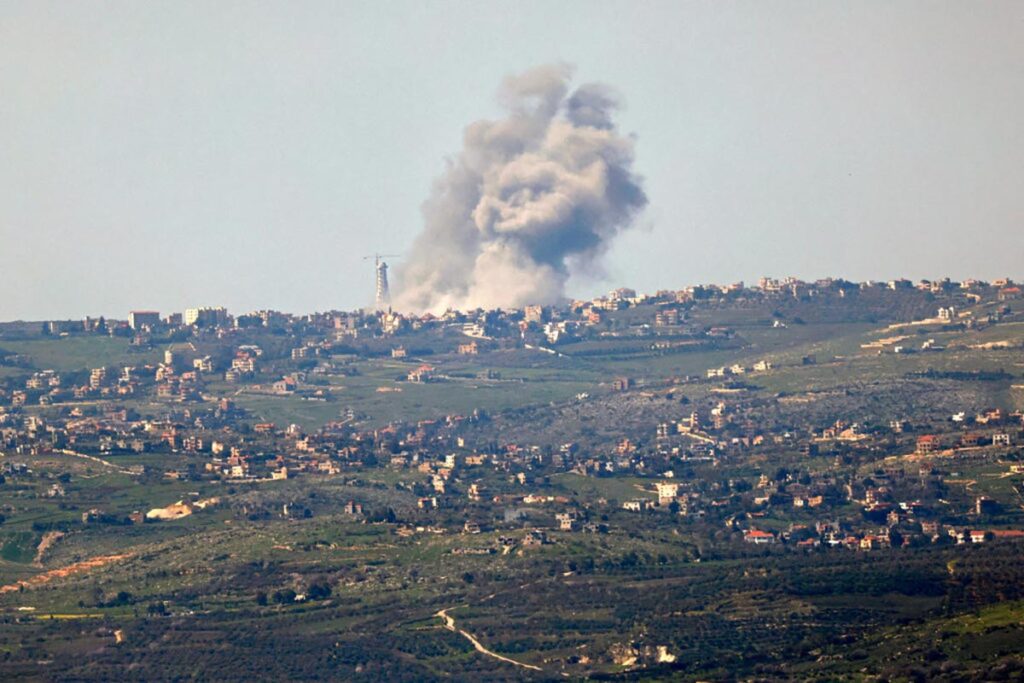
There has been pressure from international bodies and the Israel public for a ceasefire with Hamas to come to fruition in a deal that would potentially allow Hamas leader Yahya Sinwar and several Palestinian prisoners to go free in exchange for the remaining Israeli hostages.
However, since Oct. 7, Hezbollah has fired over 8,000 rockets at Israel with a flash point being when it struck Majdal Shams, killing 12 children playing soccer. It is believed that Israel has killed several hundred Hezbollah operatives in response to the terrorist group’s attacks. More than 96,000 Israelis who live in the north remain displaced due to the danger of rocket fire.
Israel assassinated Hezbollah commander Fuad Shukur in July, who not only was responsible for the Majdal Shams attack but helped orchestrate the 1983 bombing in Beirut that killed 241 American servicemen. Last month, Israel also knocked out locations it claimed Hezbollah was planning to imminently use to strike Israel, including the heart of Tel Aviv.
Melamed said he believes Hezbollah was originally supposed to join Hamas on the Oct. 7 attacks so that Israel was assaulted from the north as well as the south.
“I think that was originally the plan,” Melamed said. “Before October 7, there were meetings of leaders of the Axis of resistance, Hamas, Hezbollah, and Shiite militias, in Bagdad, and Tehran. What Hamas heard was they are basically willing, ready and able. We have to remember Hezbollah was deploying its forces closer in proximity to Israel. Hamas was trying to put pressure on Hezbollah to join the attack. There was some hesitance in the ranks of Hezbollah.”
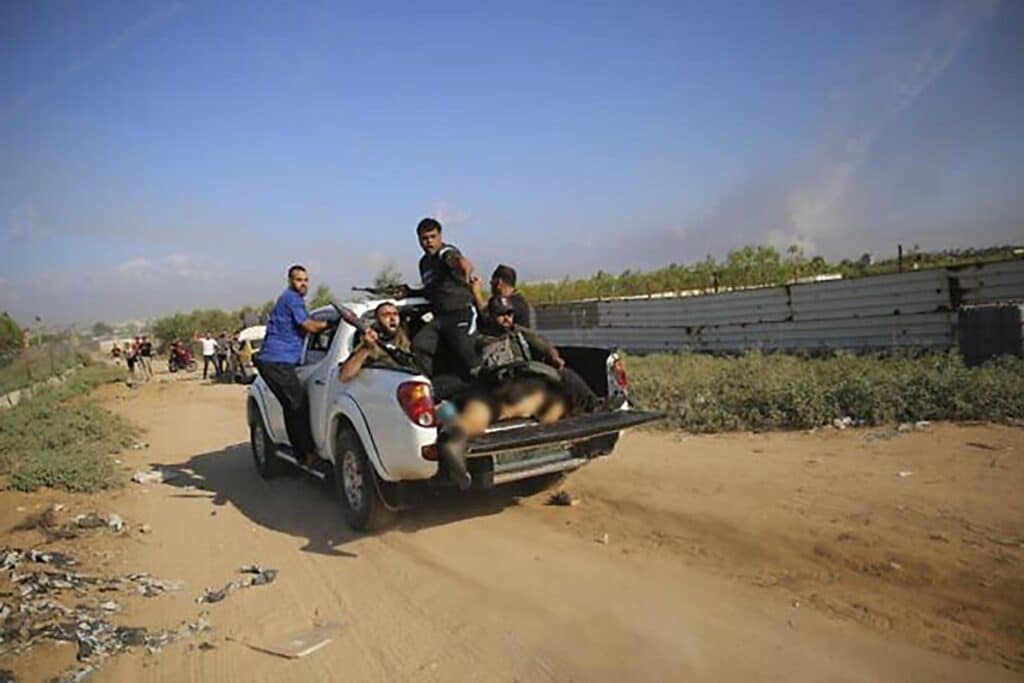
Israel has maintained that questions about how its intelligence officials failed to stop Oct. 7 would be answered after the war. Since the war broke out though, it’s been revealed that there was knowledge of drones used to knock out cameras and that several female Israeli soldiers watching the border reported movement by the fence and drills but were told by superiors that it was nothing to worry about.
“At the end of the day it was a colossal failure of Israeli intelligence,” Melamed said. “Israeli intelligence is known for its outstanding performance. In my evaluation, Hamas was conducting a very sophisticated long-term plot that was unfortunately totally deceiving.”
Can the pager explosion attack help free the hostages?
While rallies in Israel have called on Israeli Prime Minister Benjamin Netanyahu to make a ceasefire deal, and U.S. President Joe Biden said that Netanyahu needs to do more to end the war, American officials have noted that Hamas has rejected several deals. Melamed said these attacks against Hezbollah and Hamas could possibly put pressure on Sinwar to agree to a deal.
“There are a lot of moving parts,” Melamed said. “Hezbollah and Iran, to a certain extent, are cornered but with Hamas, it is all on Sinwar himself. There is no ceasefire, and Hezbollah has committed its support against Israel until there is one.
“From Sinwar’s perspective, I don’t think he felt any special pressure to move forward with any deal. Now, to the best of my knowledge, Hezbollah and Iran don’t want to be dragged into a wide collision. They need to find a way to get out of the corner. A way to do it is to pressure Sinwar into doing a ceasefire.”
How did Hezbollah become so powerful?
Translated as ‘The Party of God” Hezbollah was founded in 1982 after the war between Israel and Lebanon. In 2006, the Second Lebanon War took place after Hezbollah crossed into Israel, killed three soldiers Wassim Nazal, Eyal Benin, and Shani Turgeman, and kidnapped Ehud Goldwasser and Eldad Regev, who were also killed.
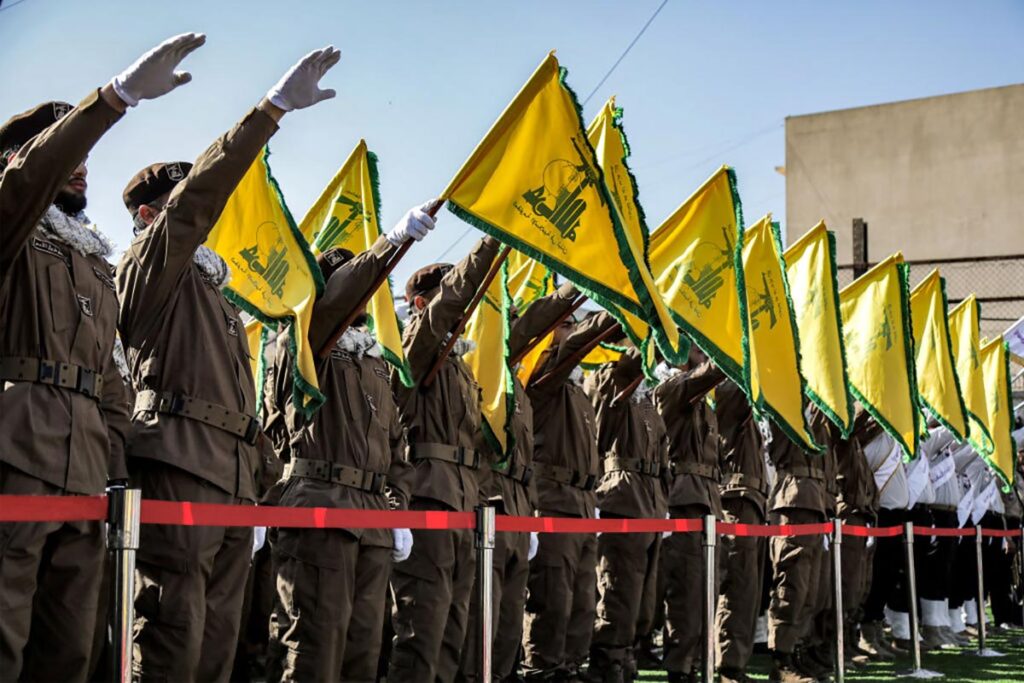
The U.S. recognizes Hezbollah as a terrorist group and has been seen as a much greater threat to Israel than Hamas due to a stockpile of an estimated 150,000 precision rockets and seasoned fighters who took part in the Syrian civil war on the side of the country’s leader, Bashar al-Assad.
With Iran viewed as the head of its axis of terror, Hezbollah is its strongest arm, as evidenced by Israel’s decision to evacuate 96,000 citizens rather than engage in an all-out war.
In Feb. 2016, Lebanese Prime Minister Rafic Hariri was assassinated and a tribunal ruled that Hezbollah was responsible. The terrorist movement has engaged in numerous attacks. On March 16, 1984, CIA Beirut station Chief William Buckley was kidnapped, tortured and eventually murdered; analysts concluded that Hezbollah was responsible for the slaying.
Hezbollah currently holds 62 seats in Lebanon’s parliament and its elite Radwan force is highly trained.
Originally Published Sep 19, 2024 12:56PM EDT
